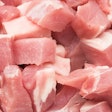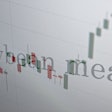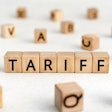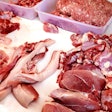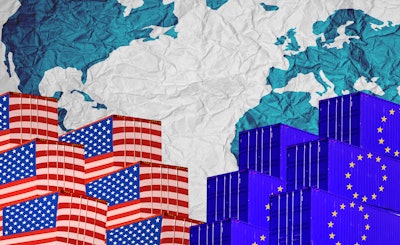
Many organizations within the EU are mulling their options in response to the second Trump administration’s imposition of a wide range of tariffs on imports.
In response to the U.S. announcement this week to impose tariffs on European automotive exports, for example, EU President Ursula van der Leyen expressed her regret.
“As I have said before, tariffs are taxes — bad for business, worse for consumers equally in the U.S. and the European Union,” she said. “We will now assess this announcement, together with other measures the U.S. is envisaging in the next days.”
She confirmed that the EU will continue to seek negotiated solutions, while safeguarding the economic interests of the trading bloc.
'Farmers should not suffer as collateral damage'
The prospect of tariffs and retaliatory measures was first raised this month.
In response, the European feed manufacturers association FEFAC said such actions would have negative impacts on food and feed security in the EU.
With the view to easing trade tensions, a delegation from the association of European farmers and agri-cooperatives Copa-Cogeca have recently held discussions in Washington with key U.S. policymakers, industry and other stakeholders.
From these meetings, it emerged that U.S. farmers and cooperatives have similar concerns about the uncertainties of future transatlantic trade policies, according to Copa-Cogeca. Furthermore, there was agreement that open markets and good relations make for fair trade and sustainable growth for all.
“The agricultural sector is strategic and essential for both our economies,” said Cogeca President Lennart Nilsson. “Instead of being drawn into trade conflicts, we must focus on strengthening cooperation, maintaining predictability and ensuring that trade policies support — rather than undermine — our farmers and cooperatives.”
“Farmers should not become collateral damage in broader trade disputes,” said Copa President Massimiliano Giansanti. “We expect the European Commission to ensure that the agrifood sector is kept out of any retaliatory measures, particularly in disputes that do not concern it, and that it acknowledges the fact that maintaining food production is Europe is key for its security.”
Prospect of tariffs on EU imports of feed ingredients from US
Next week, publication by the European Commission is expected of a final list of commodities imported from the U.S., which will be subject to retaliatory trade measures.
Products under consideration for countermeasures include raw materials for animal feeds with a proposed tariff of 25%.
Among those who have been urging EU Agriculture Commissioner Christophe Hansen to exclude feed ingredients from future import tariffs is Ciaran Mullooly, member of the European Parliament for the Republic of Ireland, reports AgriLand.
A new report covers how markets in other countries are responding to the latest round of U.S. import tariffs.





